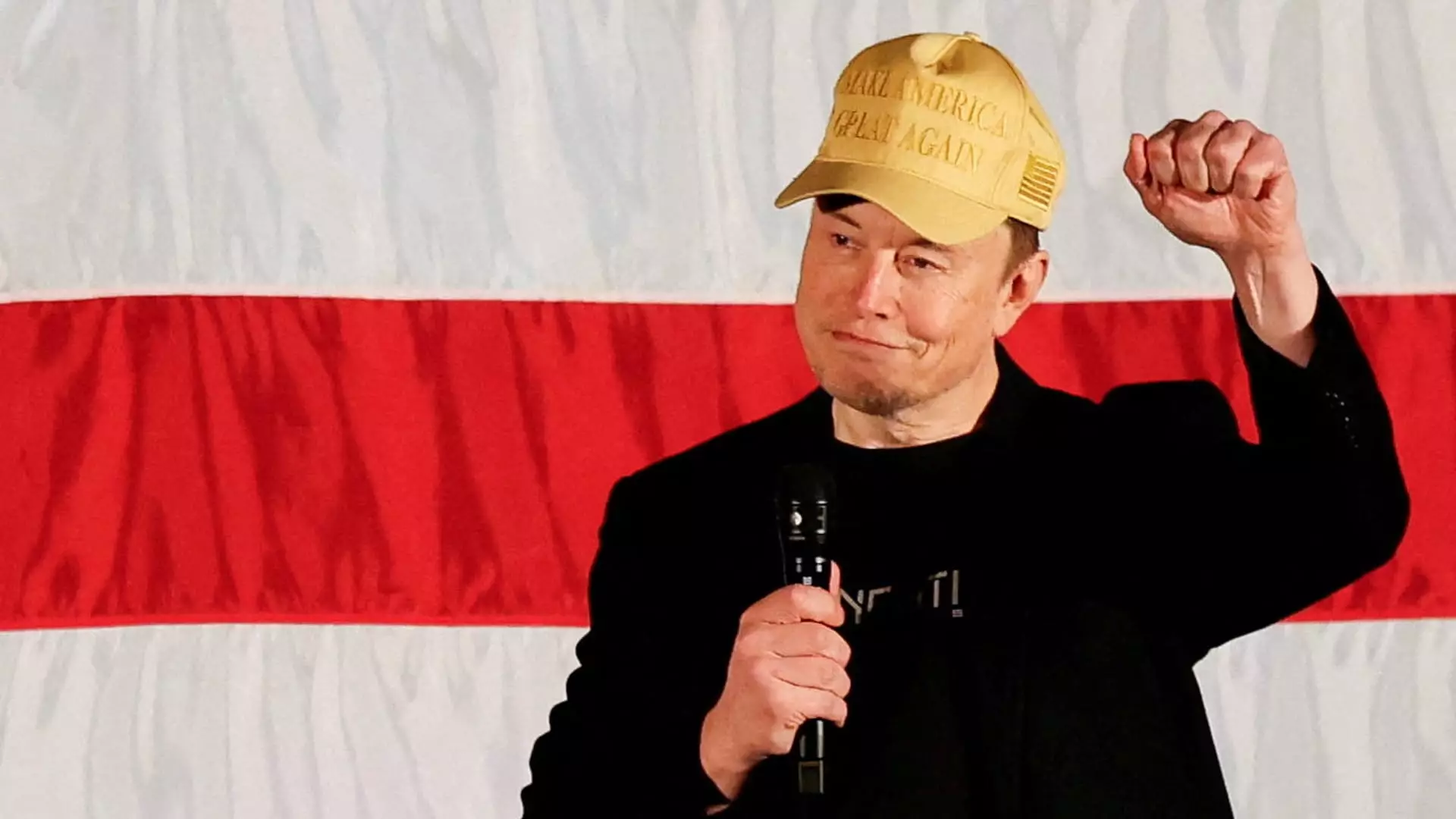Elon Musk, the billionaire entrepreneur and CEO of Tesla and SpaceX, made headlines recently when he announced a bold initiative: awarding $1 million daily to random registered voters who sign a petition in support of his pro-Trump political action committee. This proposal, unveiled during an America PAC event in Harrisburg, Pennsylvania, has sparked notable controversy and raised questions regarding its legitimacy and implications for election integrity.
During the Harrisburg event, Musk revealed his plan, stating, “I have a surprise for you.” He proceeded to present a giant check to an audience member, adding a touch of theatrical flair to his announcement. The intent behind this initiative, as outlined by Musk, is to incentivize voter registration in key swing states such as Arizona, Georgia, Michigan, Nevada, North Carolina, Pennsylvania, and Wisconsin. According to Musk, this campaign aims to mobilize voters and influence the upcoming election, which he described as pivotal, labeling Pennsylvania the “linchpin.”
However, Musk’s initiative raises eyebrows. While he may perceive it as a creative and entertaining method to engage voters, critics argue that it undermines the principles of democracy and electoral fairness. The call to sign a petition tied to a financial reward creates a scenario where votes may appear to be influenced by money, even if unintentionally.
Legal experts have voiced strong concerns regarding the legality of Musk’s giveaway. Rick Hasen, a law professor at UCLA known for his expertise in election law, pointed out that Musk’s plan could potentially contravene federal laws against compensating individuals for voting or registering to vote. The law explicitly prohibits financial incentives that may distort the electoral process.
Hasen stressed the importance of maintaining election integrity, stating, “Congress has determined you should not be able to sell your vote to the highest bidder.” His remarks reflect a broader sentiment that the intersection of wealth and politics can lead to troubling consequences. If individuals perceive that their democratic participation is being monetized, it fundamentally challenges the concept of a free and fair election.
Musk’s appearance at pro-Trump rallies is not without its controversies. He has previously propagated unfounded claims regarding voter fraud and called for deregulation of government agencies. During his speech, Musk made references that have drawn scrutiny, including comments about Vice President Kamala Harris that have attracted the attention of the Secret Service.
Moreover, Musk’s contradictory relationship with government agencies is noteworthy. While he often critiques and dismisses regulatory bodies as inefficient, his enterprises, including SpaceX and Tesla, have heavily benefited from government contracts and incentives. This paradox raises questions about Musk’s genuine beliefs concerning governmental oversight and his apparent reliance on it for personal gain.
Musk’s woes with the current administration have simmered since 2021 when Tesla was notably excluded from an electric vehicle summit hosted by the White House. The slight, in Musk’s opinion, was unwarranted, given Tesla’s significant contributions to the EV industry. He voiced his frustrations at the Harrisburg event, reflecting a sense of grievance that seems to underpin much of his public engagement.
Despite his criticisms of the government, Musk continues to assert that regulation stifles innovation and obstructs progress. He advocates for a free-market approach, suggesting that the market should self-regulate rather than placing reliance on government mandates. This ideology aligns with his broader libertarian views that often emphasize minimal government intervention in business.
While the intention behind Musk’s initiative may spring from a desire to encourage civic engagement, the methodology poses significant ethical dilemmas. Drawing voters in through financial incentives might lead to increased participation, but it also risks skewing the democratic process.
True voter engagement should derive from informed decision-making and civic duty, rather than the allure of monetary rewards. Musk’s extravagant proposal, while flashy and attention-grabbing, may ultimately distract from the underlying issues surrounding voter participation and election integrity.
As the election approaches, the conversation around voter mobilization intensifies. While entrepreneurs like Musk can play a role in inspiring participation, their influence must be exercised responsibly. Balancing innovation and ethical considerations presents a challenge for both individuals and society as a whole.
The coming weeks will likely see further scrutiny of Musk’s initiative and its ramifications. For democracy to thrive, a commitment to fair practices and genuine civic engagement must remain at the forefront—not overshadowed by extravagant giveaways or controversial social media provocations. In forging a path toward a more engaged electorate, we must remember that the integrity of our democratic processes is non-negotiable.

Leave a Reply